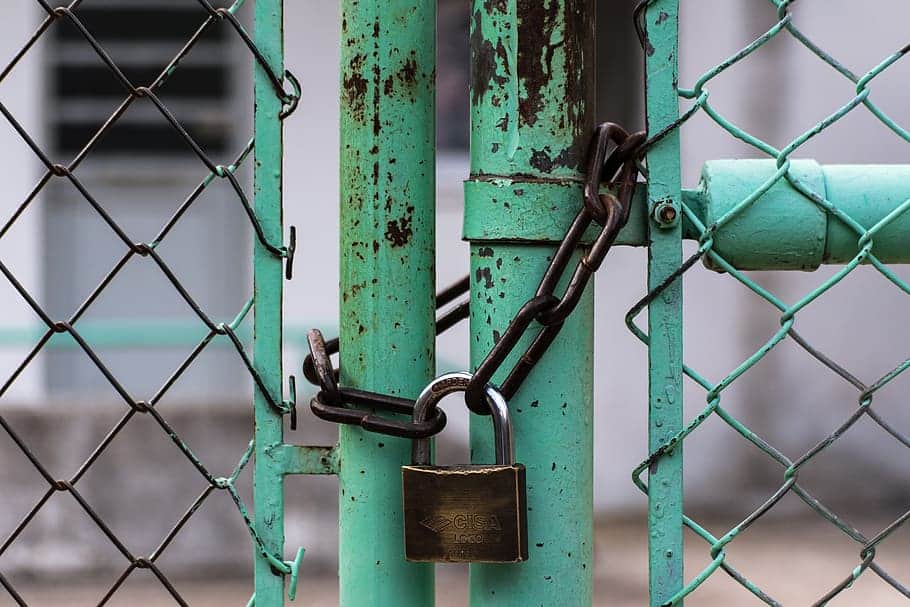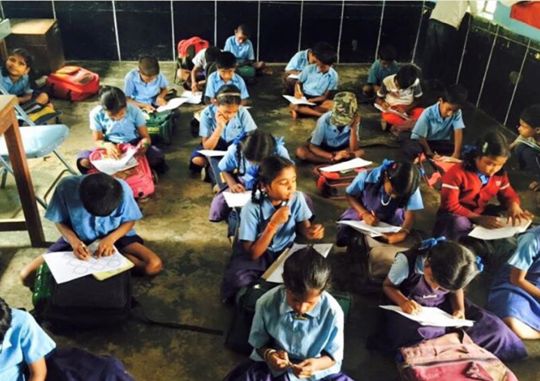With Unlock 5.0, Centre has allowed States to reopen schools, and so far a few States such as UP and Punjab have reopened schools partially. Karnataka government has deferred school opening till October 30, but has published detailed SOPs (Standard Operating Procedures) that schools have to follow once they reopen.
Globally, the experience with school reopening has been mixed. While some countries have handled the situation efficiently, some others have seen a resurgence of COVID infections afterwards. Evidently, Bengaluru schools will have to maintain strict vigil once they open. But many schools say following the government SOPs is not quite easy.
What do the SOPs say?
Following are among the provisions Bengaluru schools will have to make, as per the government SOPs. Read the full document here.
Attendance is optional, flexible
- State should take the consent of parents/guardians before children begin attending schools. Students willing to study from home with the consent of parents can be allowed to do so.
- Schools could ask a certain percentage of the students to attend at a time – rotationally on alternate days, or every two days in a week – and combine this with home assignments.
- If the enrolment is high, the school can operate in two shifts, with fewer school hours per shift. This would allow the school to manage the overall hours with the same set of teachers. For example, students of class 4 can attend school in the morning, and those in class 6 can attend in the afternoon; the same teachers can teach both classes.
- Students and staff from containment zones should not come to school. Parents should be sensitised that they must not send children if anyone in their household suffers from fever, cough, breathlessness, etc.
- Academic calendar for this year can be realigned as per the emerging situation. Comprehensive academic plan can be prepared as per guidelines from the concerned Directorate of Education.
Social distancing and sanitisation

- There must be at least a 6 ft distance between the desks in classrooms, and only one child should be seated per bench
- In hostels, temporary partitions can be erected between beds, or adequate distance maintained.
- The timing of entry and exit of students of different classes should be staggered, with different lanes for entry and exit.
- Ensure sanitisation of school transport before the vehicles start plying. Sanitisation and deep cleaning should be done in schools that had been used as quarantine centres.
- Arrange thorough cleaning and disinfection of furniture, learning materials, water tanks, kitchens, washrooms, laboratories and all other areas on campus at frequent intervals, with particular focus on frequently-touched surfaces like desks. Alcohol-based hand sanitisers and cleaning solvents should be used for sanitisation.
- Ensure availability of thermometers, disinfectants, soaps, etc.
- Events and celebration of festivals should be avoided
- All garbage should be disposed in dustbins and must not be allowed to pile up anywhere else in the school premises.
Healthcare/support services
- Schools should have full-time trained healthcare attendants/nurse/doctor and counsellor to take care of the physical and mental health of students.
- Emergency Care Support/Response Team, General Support Team for all stakeholders, Commodity Support Team, Hygiene Inspection Team, etc., are advised to be set up.
- Simple health screening of students and staff may be carried out daily and updates maintained.
Creating awareness
- Mock safety drills may be conducted regularly for a few days, on how to keep safe from COVID. Every child needs to learn how to cough or sneeze into a tissue or elbow, and avoid touching face, eyes, mouth and nose.
- Display posters/signage about social distancing at appropriate places in the school.
- Children, parents and staff members having mobile phones should be advised to download the Arogya Setu app.
If COVID is suspected:
- Isolate the ill student/staff. Provide a mask/face shield until they are examined by a doctor. Immediately inform the nearest hospital/clinic or call the State/district helpline.
- The designated public health authority will do a risk assessment and take further action regarding case management, the person’s contacts and need for disinfection.
- School premises should be disinfected if the person is found COVID-positive.
SOP implementation not easy, say schools
Many school principals and teachers opine that complete enforcement of the SOPs is difficult for various reasons.
Devi Sudhir, Principal at Prakriya Green Wisdom School off Sarjapur Main road, says frequent cleaning of surfaces can be done but schools cannot ensure that children come from infection-free houses.
She says the situation is manageable currently since only Class IX-XII students are allowed. However, if the entire school reopens, it will be taxing to ensure social distance and safety. “This will warrant increased presence of support staff, and we have to prioritise their health as well. It will also require considerable investment from the school’s side,” she says.
Full reopening warrants increased presence of support staff and considerable investment from the school’s side – Devi Sudhir, Principal, Prakriya Green Wisdom School
She also expressed concern over the use of chemical solutions for routine sanitisation. “We are a green school, we have our own restrictions regarding the use of chemicals. It is a challenge for us that the SOPs have clearly prescribed chemical solutions,” she says.
When the school held its first survey among parents in July about reopening, over 75% of the parents said the school should reopen only when Bengaluru manages to flatten its COVID curve. “As there is no sign of the curve flattering even now, we are yet to send a second survey to glean their views and take a call,” says Devi.
Guru Raghavendra, Head of Education at Samarthanam Trust for the Disabled, says some aspects of the SOPs are impractical for their students. “It is not possible for kids with partial or severe disabilities to maintain social distance. They require assistance from others for their day-to-day tasks. Also, visually-impaired students will not know what surfaces to not touch,” he says. Many of the students are children of migrant labourers, and Guru says 10% of students have already dropped out due to reverse migration this year.
Some 10-12 students are still living in the residential campus along with their caretakers. The school has taken precautions such as providing masks and gloves to caretakers, routine temperature checks, setting up sanitiser kiosks, etc. Outsiders are not allowed, and there are periodic doctor visits.
Guru says that once the school reopens, classes will be held in batches – day scholars will attend morning classes, and hostellers evening classes. The school is also planning on reducing the intake of new students this academic year.
Low-income schools struggle more
A teacher volunteering at a low-income private school in Koramangala as part of a fellowship programme, says the school may encounter financial and logistical strain in implementing the SOPs. She says the neighbourhood where the school is located is under-resourced and has had persistent hygiene problems. “Hence we have to be extra cautious about maintaining social distancing as well as the required level of hygiene once the school reopens fully,” she says. The school has an aggregate strength of 600 students.
Nusrat Bano, Principal of Government Urdu medium school in Mangammanapalya, admits they do not have enough space to maintain social distancing. The school has 10 classrooms, each just 10ft x 15ft. “Only 10 students can sit in a classroom at a time if we enforce social distancing,” she says, whereas the school has total of 300 students, that is, an average strength of 30 students per classroom.

As of now, five students each from Classes V, VI and VII come to school as they couldn’t access digital education, says Nusrat. “Most of our students are children of daily wage labourers, and cannot afford smartphones or broadband” she says, explaining why parents were willing to send their children to school.
Nusrat has distributed sanitisers and made masks mandatory, but that is as much as she can do. The school receives a few grants from NGOs for monthly maintenance, but poor infrastructure and plumbing loopholes have added to the management’s concerns. Fixing these problems as well as ensuring sanitisation is not possible without government grants, she says.
For the headmistress of Newton Public School in Bommanahalli, the concern is more about staff and students who aren’t around anymore. Jyoti C says she had 40 staffers at the beginning of lockdown, now she is down to 13.
“Parents are reluctant to send their children to school and thus haven’t paid the fees. They are not even considering admitting their child this academic year. So teachers have been compelled to work on half their salaries,” Jyoti says. She, however, is confident about holding classes in shifts once the school reopens.
Parents worried too
While the risk of COVID is lower for children, reopening of schools could heighten the risk for thousands of elderly family members who live with them. Teachers and support staff at the schools would be vulnerable too.
Echoing these concerns, many parents are not keen on sending their wards to schools just yet. Deepak Padmar, whose son is in Class X, prefers he stay at home in lieu of the rising cases. His son has a device of his own and sufficient internet bandwidth. “We have elderly people residing with us, so it would be detrimental if my son came back from school with illness. There is no guarantee that children will strictly maintain social distance,” Deepak says.
I think government should concentrate on an effective online education system for at least next six months for both schools and colleges, so many times they are changing decisions,it is only increasing confusion in school and university management, instead of that if they decide to continue with online firmly then everyone can concentrate and make that more effective. Government should remember with small children and teachers, they are risking lives of elderly members in their family. When government can’t provide free and good treatment they have no rights to endanger everyone’s life.